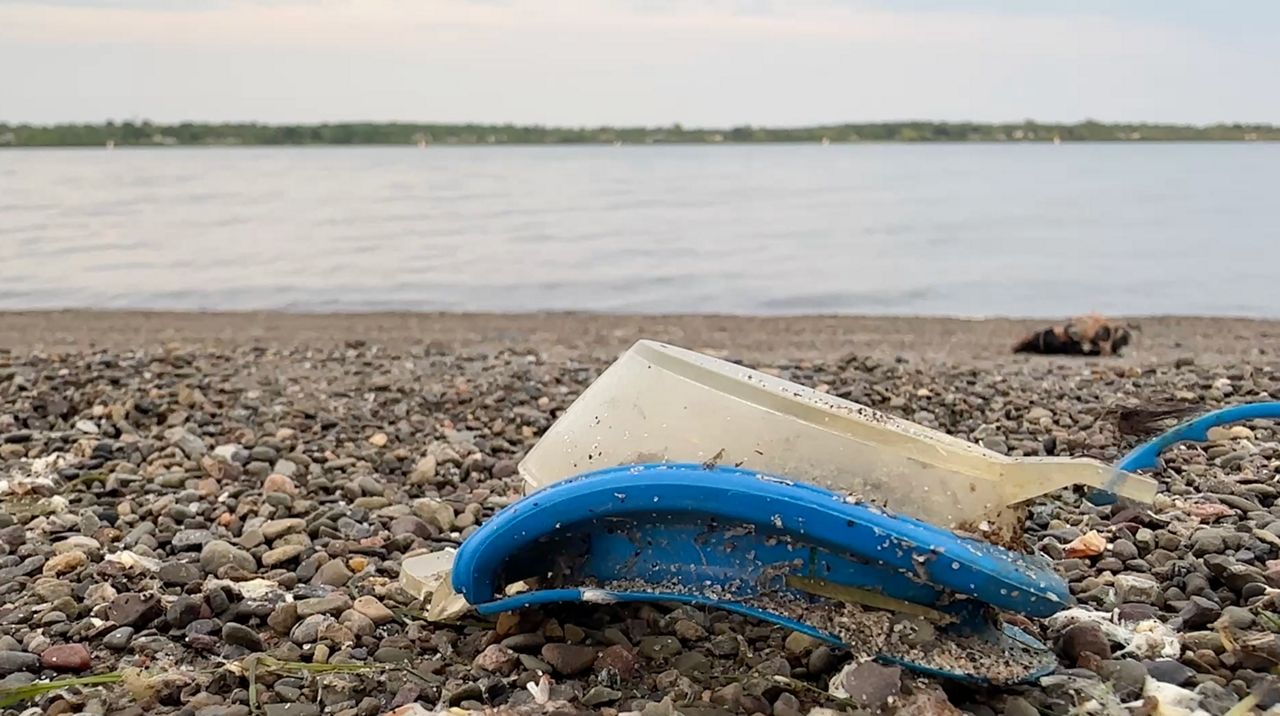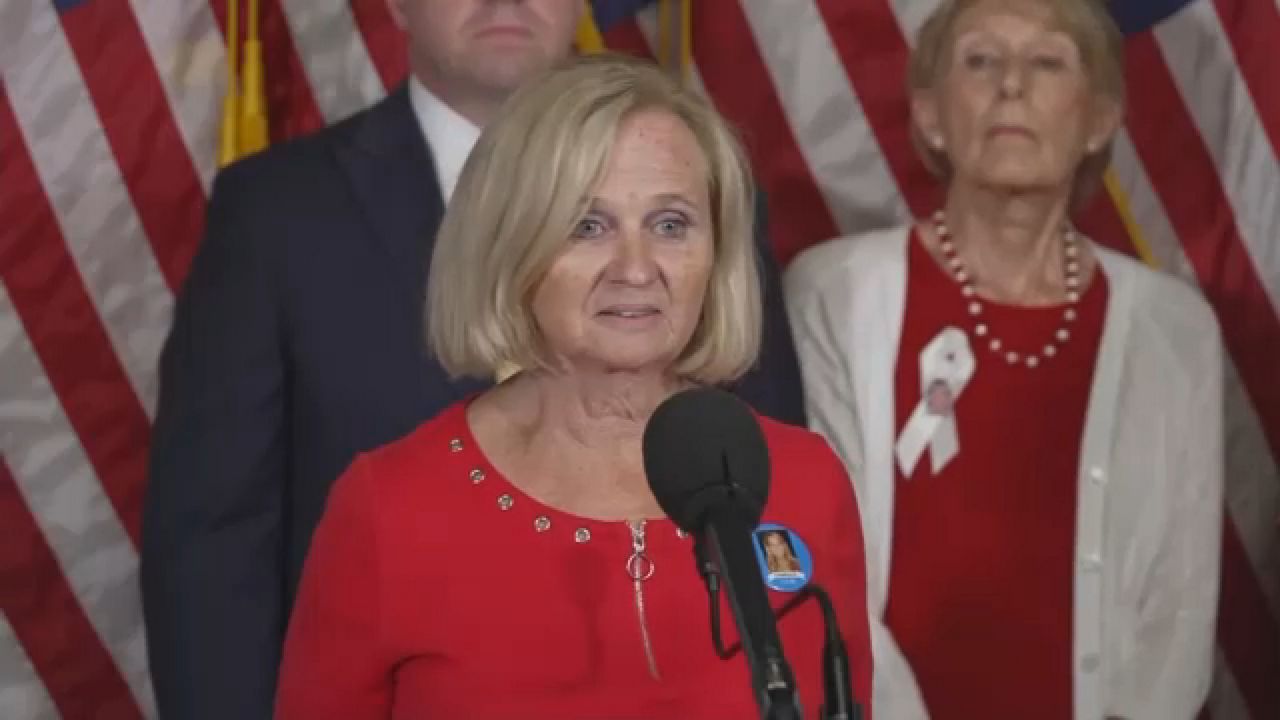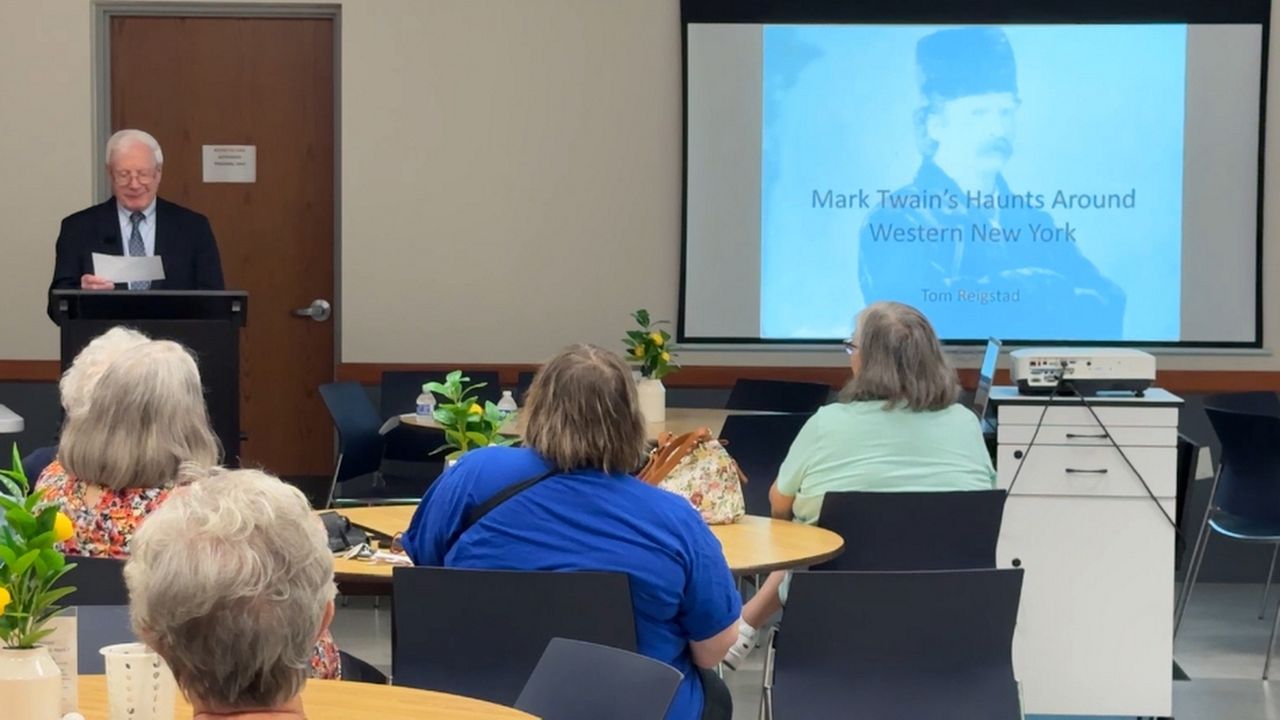For any one spot on Earth, it only happens once every 400 years or so. A total solar eclipse is a marvel for even those who study science for a living.
“It’s going to be an event like we haven’t seen before in our lifetimes,” said Kevin Williams, director of the Whitworth Ferguson Planetarium at SUNY Buffalo State University, said.
Williams is eagerly anticipating those few minutes on April 8, 2024, when the moon completely blocks out the sun.
“This type of event that people describe as being awe-inspiring, religious. There really are sometimes no words to describe it,” he said.
The last time a total eclipse occurred in Buffalo was 1925, and after next year, it won’t happen again until 2144.
Inside the planetarium, computer models show us what the experience will look like.
“We’ll be able to see the sky get darker,” he said. “We’ll be able to see some of the bright stars and planets. Animals will start behaving like it’s beginning to be nighttime. Temperatures will drop, winds might pick up.”
We’ve seen partial solar eclipses more frequently — like back in 2017 when the university hosted a watch party and more than a thousand people showed up. Williams expects folks will come from vast distances to see a vastly more dramatic wonder next April.
“So that’s why a lot of people who are able to end up traveling around the world chasing total solar eclipses to have that experience over and over again,” he said.
With the total eclipse hitting around 3:18 p.m., right when schools let out, it could be an opportunity to use that afternoon as a learning experience outside the classroom and take at least part of the day off.
“What you don’t want to happen is for kids to be on school buses during it because one, they’ll be stuck in traffic, and two, they won’t get to watch it,” he said.
Specialized glasses will also be a must to safely view the sky that afternoon as the moon's path begins to cross over the sun.
“You also want to make sure you take off your eclipse glasses during totality because you won’t be able to see the corona around the sun without looking at it without your glasses,” he explained. “But you also want to be careful to put your glasses back on when you get back into the partial.”
Scientists like Williams will study the sun and its effects on the natural environment, but also enjoy it like the rest of us.
“I’ve never seen a total solar eclipse which I’m a little embarrassed about, but I’m really excited for this next one. I hear once you see one you want to see more,” he said.
For thousands of years, humans have looked to the heavens in amazement and this will be a sight like few others.








)
